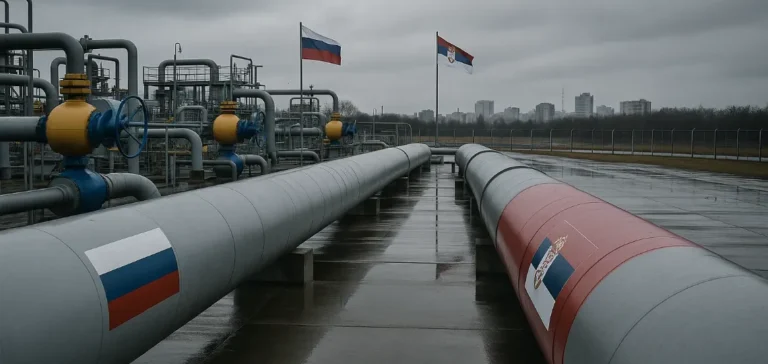Serbia, one of the few European countries maintaining significant gas contracts with Russia, is planning a new supply agreement with Gazprom, scheduled to start in September. Dusan Bajatovic, General Director of Serbia’s state-owned company Srbijagas, stated that this contract would offer the “best price in Europe,” while refraining from specifying the exact rate due to ongoing commercial discussions.
European energy context
Serbia annually consumes approximately 3 billion cubic metres of Russian gas. Although the European Union (EU) is currently proposing a total ban on Russian natural gas imports, including liquefied natural gas (LNG), by the end of 2027, Serbia continues its commercial exchanges with Gazprom.
Serbia’s energy dependency relationship with Russia comes amid a tense European context, where most nations are actively seeking to diversify their supply sources. The EU’s recent proposal is legally binding for all potential members, including candidate countries such as Serbia.
Duration of the future contract
The upcoming agreement could last from three to ten years, depending on terms still under negotiation. This strategic timeline coincides with a critical period for the region’s energy future, marked by heightened political tensions around hydrocarbon supplies and energy diversification.
According to Bajatovic, Europe’s dependency on Russian gas is economically unavoidable: “It’s mathematical. You can’t solve the equation of European gas supplies at acceptable rates without Russian gas,” he explained during the International Economic Forum in Saint Petersburg.
Global gas market outlook
The Srbijagas General Director also highlighted that the future of the global gas market would primarily be shaped by Russia and the United States as major producers, along with China as a key consumer. In his view, Europe will inevitably have to accommodate this economic reality.
Moreover, Bajatovic expressed support for a potential takeover of the Nord Stream pipeline by American investors. The pipeline, connecting Russia to Germany under the Baltic Sea, was severely damaged by explosions in 2022, halting all deliveries since that date.
Thus, Serbia continues to rely on a strong energy partnership with Russia, while simultaneously facing European energy directives, in a context where national economic interests significantly influence forthcoming strategic decisions.






















